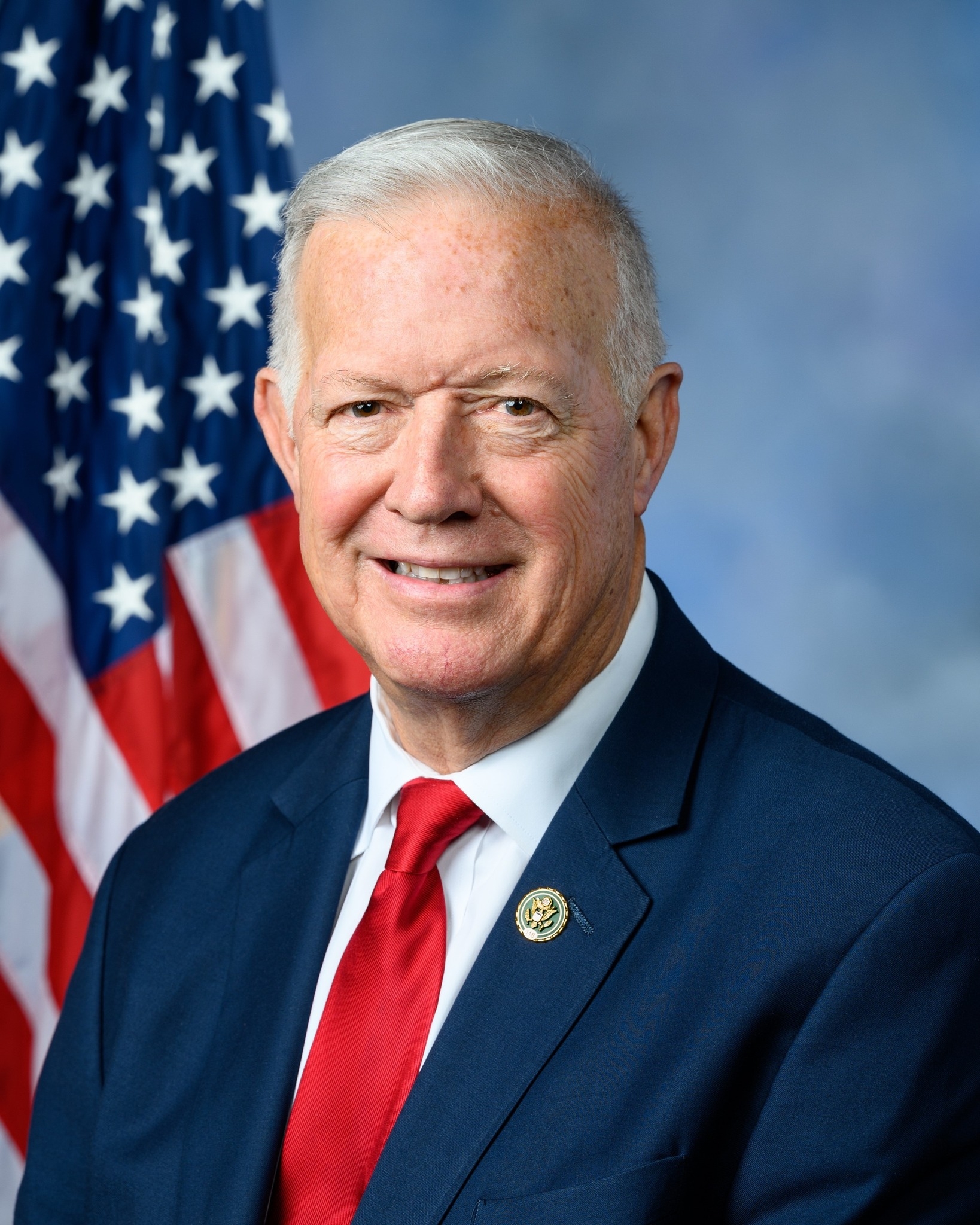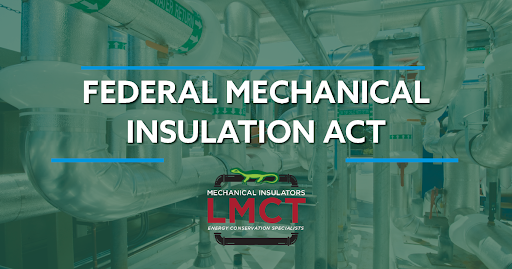The Mechanical Insulators Labor Management Cooperative Trust (LMCT) is proud to announce the introduction of the bipartisan Federal Mechanical Insulation Act of 2025 (FMIA) by Rep. Randy Weber (R-Texas) and Rep. Linda Sánchez (D-Calif.) to the House of Representatives on May 16.
Mechanical insulation provides large-scale and long-term energy efficiency, emissions reductions, cost savings and safety benefits for manufacturing facilities, power plants, refineries, hospitals, universities and government buildings, while creating thousands of American jobs, with the manufacturing of nearly all Mechanical Insulation taking place in the U.S.
The FMIA, House Resolution 3474, will advance federal energy efficiencies, save tax dollars and reduce energy loss and emissions for the approximately 350,000 federal buildings in the U.S. It will also add an important audit metric for regulators to include when assessing federal buildings’ measure of Mechanical Insulation efficiencies.
H.R. 3474 has been referred to the House Energy and Commerce Committee.

 “For 35 years, I owned and operated an air conditioning company, so I understand the importance of smart, targeted energy conservation,” said Rep. Weber. “This legislation is not only good policy, it’s common sense. It will reduce waste, strengthen energy preservation efforts, and lower the cost to taxpayers who are footing the bill to power federal buildings.”
“For 35 years, I owned and operated an air conditioning company, so I understand the importance of smart, targeted energy conservation,” said Rep. Weber. “This legislation is not only good policy, it’s common sense. It will reduce waste, strengthen energy preservation efforts, and lower the cost to taxpayers who are footing the bill to power federal buildings.”
“As we work to improve energy efficiency, lower emissions and ensure the responsible use of taxpayer dollars, the federal government must lead by example,” said Rep. Sánchez. “Mechanical insulation is a proven solution that enhances energy efficiency and reduces costs. By implementing this cost-effective technology across all federal facilities, we will not only cut emissions and save taxpayers millions of dollars but also help create good-paying American jobs.”
According to the Government Accounting Office (GAO), the federal government is the single largest energy consumer in the country, consuming more than 344 trillion BTUs of energy and 119 billion gallons of water in Fiscal Year 2021. Federal agencies are required by statute to conduct energy and water use evaluations and audits of federal facilities every four years to identify energy or water savings efficiency measures.
Currently, the National Energy Conservation Policy Act, part of the National Energy Act 1978, sets out an array of measures intended to promote energy conservation in all three sectors of U.S. energy use – buildings, industry, and transport.
Section 432 of the Energy Independence and Security Act of 2007 (EISA) makes changes to Section 543 of the National Energy Conservation Policy Act (NECPA) and creates a statutory requirement for federal agencies to conduct energy and water use evaluations, which include energy audits, of federal buildings.
While Section 432 of EISA does not define “comprehensive energy and water evaluations,” Department of Energy guidance provides some guidelines for audits as part of these evaluations. Therefore, this legislation would clarify that Mechanical Insulation energy audits qualify under comprehensive energy and water evaluations.
In recognition of the important role that Mechanical Insulation plays in lowering operating expenses, reducing energy loss and decreasing emissions, the legislation makes the following specific changes to portions of the EISA:
- Defines “Mechanical Insulation property” as materials, facings and accessory products that are part of a mechanical system and that reduce energy loss from that mechanical system, and meets or exceeds the minimum requirements of the American Society of Heating, Refrigerating and Air-Conditioning Engineers Standard 90.1.
- Expands the definition of “energy and water evaluations” to include identification of energy- and water-saving measures (including installation of Mechanical Insulation property, if applicable).
Pete R. Ielmini, the Executive Director of the Mechanical Insulators Labor Management Cooperative Trust, thanked both Reps. Weber and Sanchez for introducing the legislation into the House.
“I thank Rep. Weber and Rep. Sanchez for introducing this important bill that will not only save America’s energy, but also save taxpayers’ money,” said Ielmini. “This bipartisan bill will also increase the number of good-paying jobs in the mechanical insulation industry.
“We had 88 bipartisan co-signers with last year’s 118th Congress when the bill was H.R. 4663, and are looking forward to matching or increasing those efforts in the new Congress with H.R. 3474. Saving taxpayer’s money just makes sense; it should be a goal of our government,” he added.
The FMIA is supported by a diverse coalition of leading labor and industry voices including:
- LMCT
- AFL-CIO
- BuildingAction
- Central States Insulation Association (CSIA)
- Eastern States Insulation Contractors Association (ESICA)
- Insulation Contractors Association of New York (ICANY)
- Industrial Insulation Contractors Association of Southern NY (IICASNY)
- International Association of Heat and Frost Insulators and Allied Workers (IAHFIAW)
- Midwest Insulation Contractors Association (MICA)
- National Association of Energy Service Companies (NAESCO)
- North America’s Building Trades Unions (NABTU)
- National Insulati
- on Association (NIA)
- National Union Insulation Contractors Alliance
- Sheet Metal, Air, Rail and Transportation Workers (SMART)
It is also endorsed by multiple businesses:
- Advanced Specialty Contractors
- Aeroflex
- Alkegen
- Anchor Insulation LLC
- APi Construction Company
- Argus Contracting
- Atlantic Contracting & Specialties
- Bondy Insulation
- Burnham Industrial Contractors, Inc.
- Coldwater Insulation, Inc.
- Cornerstone Services Group LLC
- DKB, Inc.
- Gribbins Insulation
- Hailey Insulation Corp.
- Hamilton Insulation, Inc.
- Johns Manville
- M & O Insulation Company
- National Environmental Contracting, Inc.
- Owens Corning
- Prime Insulation LLC
- RFJ Insulation Contractor, Inc.
- Rival Insulation
- Smart Energy Insulation
- Summit Contracting
For more information about the value of Mechanical Insulation, please contact the LMCT.
